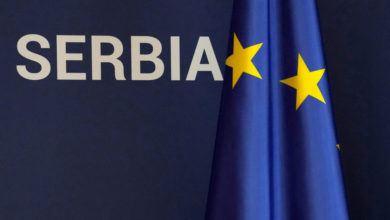WHO To Share Vaccines To Stop Monkeypox Amid Inequity Fears

The World Health Organization said it’s creating a new vaccine-sharing mechanism to stop the outbreak of monkeypox in more than 30 countries beyond Africa. This could lead to the U.N. health agency dispensing scarce vaccine doses only to wealthy countries who can afford them.
To some health experts, the initiative potentially misses the opportunity to control monkeypox virus in the African countries where it’s infected people for decades, serving as another example of the inequity in vaccine distribution that was seen during the coronavirus pandemic.
WHO Director-General Tedros Adhanom Ghebreyesus said the agency is developing an initiative for “fair access” to vaccines and treatments that it hopes will be ready within weeks. This mechanism was suggested shortly after the United States, Britain, France, Germany and Canada reported thousands of cases of monkeypox last month.
The effectiveness of vaccines against smallpox (a closely related disease) is estimated to be around 85%. WHO’s Europe director, Hans Kluge, said Wednesday he was concerned by the scramble by some rich countries to buy more vaccines without talk of buying supplies for Africa.
Continue reading: There’s Already a Monkeypox Vaccine. However, not everyone may need it
Kluge urged governments “to approach monkeypox without repeating the mistakes of the pandemic.” Still, he did not discount the possibility that countries like Britain, which currently has the biggest outbreak beyond Africa, might receive vaccines through WHO’s mechanism.
The program would be available to all countries, he said. Vaccines will largely be administered based on the country’s epidemiological requirements.
“Europe remains the epicenter of this escalating outbreak, with 25 countries reporting more than 1,500 cases, or 85% of the global total,” Kluge noted.
Experts from Africa questioned the U.N.’s refusal to recommend vaccines for West Africa and central Africa where the disease is rampant.
“The place to start any vaccination should be Africa and not elsewhere,” Dr. Ahmed Ogwell, acting director of the Africa Centers for Disease Control and Prevention, said.
The lack of monkeypox vaccines on Africa was more concerning than reports of milder diseases in the rich.
“This is an extension of the inequity that we saw during COVID,” said Dr. Ifeanyi Nsofor, director of policy and advocacy at Nigeria Health Watch. “We have had hundreds of monkeypox cases in Nigeria from 2017 until now and we’re just dealing with it on our own,” he said. “Nobody has discussed when there might be vaccines available for Africa.”
Global health agencies were quick to establish COVAX to help distribute COVID-19 vaccines after the 2020 coronavirus pandemic. But rich countries bought up most of the world’s supply, and the COVAX program missed multiple targets to share doses with the world’s poor.
Only 17% have had a dose of the coronavirus vaccine so far in countries that are poorer than theirs. Monkeypox could be the next victim, experts warn.
“Just like with COVID, there is no clear path for how poorer countries will be able to get vaccines,” Brook Baker, a Northeastern University law professor who specializes in access to medicines, said.
Continue reading: How COVID-19’s Response to Monkeypox can Teach Us
As WHO searches for vaccine dosages, he warned rich countries not to promise doses if they aren’t cooperating.
“Rich countries will protect themselves while people in the global south die,” Baker predicted.
On Monday, advocacy group Public Citizen sent a letter to the White House, asking if the Biden administration would release the 20 million smallpox vaccines the U.S. pledged in 2004 for WHO’s use in the event of an emergency, like a biological attack.
Asked about the commitment, a senior U.S. official said the government was “exploring all options” to further their efforts to stop monkeypox within the U.S. and globally.
Official said that the U.S. had given more than 200k doses of smallpox vaccine back to the manufacturer to ensure they were available to other people. However, the official did not say whether or not the U.S. considers this current outbreak of monkeypox an emergency worthy of the release the pledged 20 million vaccines.
Francois Balloux of University College London is an infectious disease expert who said vaccine efforts should focus on rich countries and that it would be necessary to overhaul future African monkeypox responses.
“It really should be a priority to vaccinate people in Africa, where there is a nastier strain that has actually killed people,” he said, adding that more monkeypox spillovers were likely in the future.
“Whatever vaccination happens in Europe, that is not going to solve the problem,” Balloux said.
Washington, Zeke Miller contributed this report.
Here are more must-read stories from TIME





